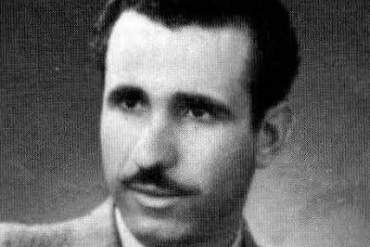“What do you want?” I asked, exasperated.
My friend (let’s call him “Dan”) stared back at me blankly.
It was clear that he had never been asked the question, not by others and certainly not by himself.
As is bound to happen in Gush Dan (Tel Aviv and the surrounding areas), the topic of judicial reform and the alleged impending doom of the country surfaced in our conversation.
I had not seen Dan for a while and was happy to see him again. Dan is a pure soul, someone who doesn’t hate anyone and avoids conflicts. He would likely identify as “secular” but has a soft spot for Jewish history and traditions. During his free time, he works out at the gym, teaches himself Arabic songs on the oud, and makes a living in tech. You would be lucky to know him. When the topic of judicial reform arose, he gave the expected dispassionate but eloquently put reservation about the consequences of the policy.
“You know, some American companies have started to pull out their offices and investments from Israel,” he said with a glimmer of worry in his eye.
“If things don’t get better, maybe my own career will be affected.”
“I am so sorry to hear that, aḥi,” I said with a pain brewing in my chest.
“But what do you think of the reform?”
“What do I think?” he paused. “They’re saying that it would allow the government to not enforce contracts of many of these companies.”
“Who says that? How would the reform allow the government to do that?” I asked with genuine interest.
“I am not really sure,” replied Dan.
“Also, I asked for your thoughts on the policy. What do you want?”
I could not believe my ears. Put aside whether the judicial reforms are beneficial or detrimental, or whether they were rolled out too fast. Dan had not even considered that he, an Israeli citizen, could have his own say in the matter independent of what a separate nation might do.
Dan, like so many of us, was shaping his worldview according to fear. Dan, like so many of us, sounded like a hostage.
He dared not allow himself to ponder what he wanted from the judiciary of his own country. His primary concern was what a foreign entity would do to compromise his livelihood in the wake of a domestic policy. That so many of my brothers and sisters feel like well-cared for hostages in the one and only Jewish state is the real crisis exposed by the judicial reform.
This episode highlights an urgent need for restructuring the relations between the United States and Israel. Tech partnerships must not devolve into cyber colonialism. Alliances must not become dependencies. After every bread meal, we Jews recite Birkat HaMazon (Grace After Meals). In it, we ask, “HaShem our G-D, please do not make us dependent upon the gifts of mortal men nor upon their loans, but only upon Your full, open, holy, and generous hand, that we may never be shamed or disgraced.”
It is unclear how many pitot it will take to heed the message.
This brings us to someone else.
A week prior to the above encounter, a similar interaction took place only this time with someone with an impressive military career, a true hero of Israel. Let’s call him “Ram.”
When the topic of reform came up, I was greeted by the typical sloganeering. “Bibi is the prime minister, so he bears the responsibility for what’s going on.”
“And what’s going on?” I asked.
“Look at who is against it. Can it be possible that fighter pilots, members of the security agencies, and other experts are all wrong but that you are right?”
Me? My mouth dropped.
“Also, name me a Supreme Court ruling that was so bad that we need this reform now.”
Ram could not bring himself to engage with my basic question let alone answer it. He found himself answering any and every question other than the one being asked, almost purposefully missing the point. Like Dan, his sole focus was on the consequences of the reform but not the substance of the policy. It was as though he had forfeited any sense of agency he had over the fate of his own country. He did not seem to believe that what he wanted mattered, so he did not bother to consider it.
“But what does any of this have to do with the policy itself? What do you want?” I asked trying to get back on track.
“Look, at the end of the day my greatest concern is what the United States will do if we continue like this,” he replied.
There it was. My heart sank.
Together, Dan and Ram form “Dan Ram.”
Dan Ram was a high-ranking member of Hagana who Dr. Israel Eldad describes as an archetype for a Jew whose heart is in the right place but is unable to take the final step. Despite fighting for Hagana, Dan Ram sympathized with the more ideologically radical Leḥi faction.
In The First Tithe, Eldad criticizes this tendency as blurring the line between freedom fighter and collaborator thereby “confusing concepts.”
In other words, the failure of Dan Ram to fully reach the conclusions of his worldview is what got him and others into immense trouble during the underground days and still paralyzes Am Yisrael today.
Israel’s economy competes with global superpowers, its happiness rating is fourth in the world, and its population is growing faster than those of any Western nation.
My question for the Dan Ram living in all of us is: What do you want?





